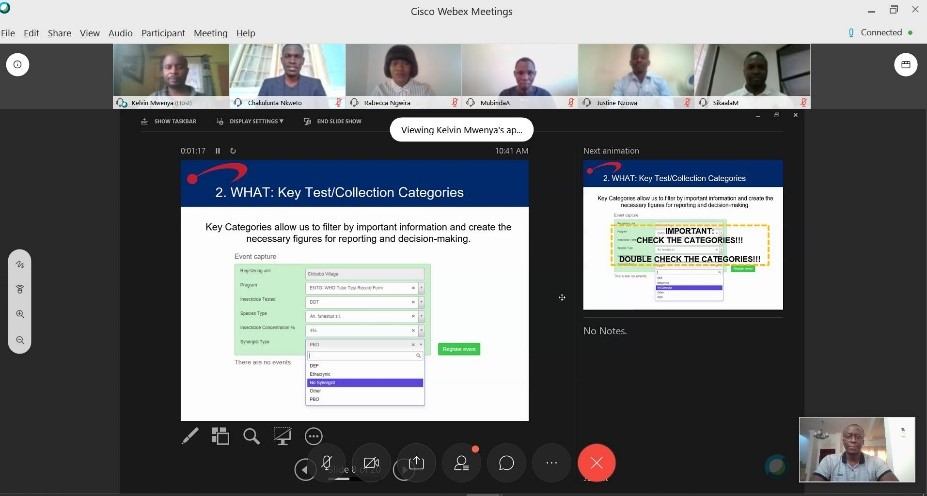PMI Pilots Integrated, Global Database with IRS and Entomological Data to Manage and Guide Timely-Vector Control Decisions
Insecticide resistance is rising across the globe, threatening the massive gains made in the control of malaria over the past 15 years. These gains can be attributed to the increased use of indoor residual spraying (IRS) and insecticide-treated nets (ITNs), which use insecticides to kill or repel mosquitoes that carry the malaria parasite. Timely, evidence-based vector control decision-making is essential to ensuring the most effective insecticides are being used.
The U.S. President’s Malaria Initiative (PMI) VectorLink Project conducts robust entomological monitoring efforts to understand malaria vectors – species that carry malaria – and their geographical and temporal distribution, feeding and resting behaviors, and resistance to insecticides. In 2018, PMI VectorLink developed a comprehensive District Health Information Software (DHIS2)-based data management system, VectorLink Collect, to support routine IRS data needs across project countries. Now, the project is expanding the database to manage entomological data across 17 African countries.

This advancement enables PMI-funded IRS and entomological data to be managed in a single system, and supports improved data quality and integrated analytics. VectorLink Collect also allows both internal and external decision-makers, such as National Malaria Control and Elimination Programs (NMCP/NMEP), and PMI/USAID in the U.S. and in country, to access comprehensive data at multiple levels. Furthermore, building VectorLink Collect on DHIS2, a platform that is used by Ministries of Health in every PMI-focus country where VectorLink works, also supports country-level priorities and systems, and aligns with PMI’s goal to support sustainability and the journey to self-reliance.
The project piloted the VectorLink Collect entomology instance in Zambia in February 2020. The Zambia country team had already been using VectorLink Collect for IRS data, and carries out comprehensive entomological activities. The pilot has helped the project to better understand data work flow needs, quality review processes, and general ease of use of this new system for entomological data. The VectorLink Zambia team provided comprehensive feedback and recommendations to inform critical updates to program design and minimize challenges as more countries start using the system. It became apparent that certain field work factors, such as the remoteness of collection sites, needed to be accounted for in determining realistic data entry timeframes. In addition, Zambia introduced a monthly plan to guide data review and data entry processes and expectations. The successful pilot concluded in April 2020, and the project continues to enter ongoing entomological data into VectorLink Collect.
The success of this important pilot and overall positive feedback from the VectorLink Zambia field entomologists and data managers supports the use and expansion of VectorLink Collect for entomological data. It formed the basis for finalizing training approaches for the broader roll out to remaining country teams. This is especially valuable as all trainings will now be conducted remotely. The use of VectorLink Collect for entomological data will allow for an integrated, global database to manage and use timely data to guide malaria control work.
Rabecca Ngwira, VectorLink Zambia entomology field coordinator, said, “We have longed for a system that allows rapid generation of entomological data summaries and graphical representations without a need for elaborate Excel worksheets and complicated use of formulae, and here we have it in the VectorLink Collect.”

